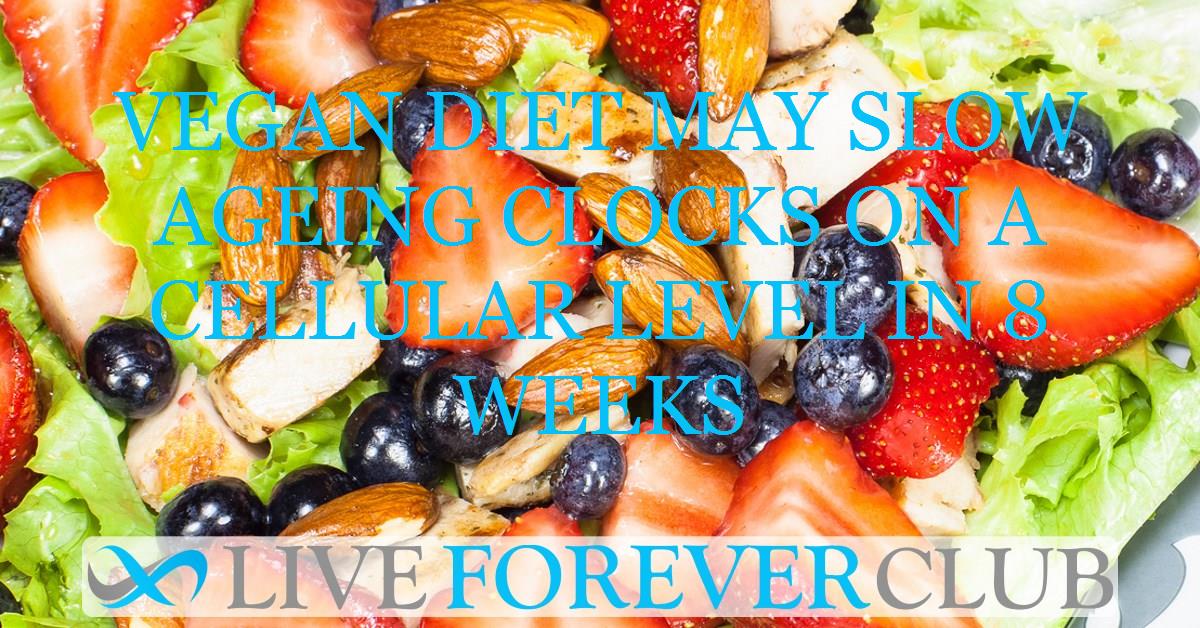Epigenetics, a fascinating field of genetics, explores how our behaviors and environment can cause changes that affect the way our genes work. Intriguingly, these changes do not alter the DNA sequence but instead influence gene expression and activity. This emerging area of science has profound implications for ageing, an inevitable biological process characterised by the gradual decline in physiological functions.
The impact of diet on ageing has long been a topic of debate in the scientific community. Particularly, the comparison between vegan and omnivorous diets opens a window into understanding how our food choices might influence the ageing process at a molecular level. As research delves deeper into the nuances of epigenetics, the vegan vs. omnivorous diet debate adds a critical dimension to our understanding of dietary choices and their potential long-term effects on our health and longevity.
Understanding the molecular mechanisms of ageing is crucial for developing strategies to promote healthy ageing and mitigate age-related diseases. Ageing is a complex process influenced by various factors, including genetics, lifestyle, and environmental exposures. By exploring these factors at a molecular level, particularly how they affect gene expression and cellular function, scientists can gain insights into the ageing process and identify potential interventions.
The Twins Nutrition Study (TwiNS) aims to shed light on this intricate process. This innovative study is designed to explore the effects of diet on ageing. By comparing the impacts of a vegan diet versus an omnivorous diet, the TwiNS study seeks to understand how different dietary patterns might influence the biological mechanisms of ageing. The unique aspect of this study is its focus on twins, providing a controlled environment to assess the influence of diet on genetic and epigenetic factors related to ageing.
Study details
The Twins Nutrition Study (TwiNS) employed a unique design to compare the effects of an eight-week plant-based (vegan) diet with a healthy omnivorous diet. This comparison was made through studying blood DNA methylation in paired twins, offering a controlled setting to isolate the impact of diet on epigenetic changes.
DNA methylation is a key epigenetic mechanism, involving the addition of a methyl group to DNA, which can alter gene expression without changing the DNA sequence itself. This process is crucial in ageing studies because it can reflect and potentially influence the biological age of cells, impacting the overall ageing process and related health issues. By analysing DNA methylation patterns, the study aimed to uncover how dietary choices might affect ageing at the molecular level.
Results
The study unveiled some remarkable findings that deepen our understanding of how diet influences the ageing process. Central to these findings was the impact of an eight-week vegan diet on epigenetic age acceleration compared to an omnivorous diet.
Reduction in Epigenetic Age Acceleration: The most striking outcome was observed in the vegan group, where participants showed a significant decrease in overall epigenetic age acceleration. This suggests that a vegan diet may have a protective effect against the ageing process at a molecular level. The study measured this effect by analysing changes in DNA methylation patterns, a key indicator of biological age.
Improvements in Various Health Markers: Participants on the vegan diet exhibited specific improvements in several critical health systems. There was a notable reduction in markers of inflammation, which is significant given that chronic inflammation is linked to various age-related diseases. Heart health indicators also improved, suggesting potential cardiovascular benefits. The vegan diet seemed to positively influence hormone regulation and liver function, both vital for overall health and metabolism. These changes point towards a holistic impact of the vegan diet on crucial bodily functions.
No Significant Changes in the Omnivorous Group: In contrast, the omnivorous group did not show significant changes in epigenetic age acceleration or the various health markers evaluated. This finding is critical as it suggests that the standard omnivorous diet may not confer the same benefits regarding ageing and related health aspects as the vegan diet.
These results present a compelling case for the potential anti-ageing benefits of a vegan diet. The study highlights the importance of dietary choices in influencing biological ageing processes and overall health. It suggests that plant-based diets may offer a viable approach to slowing down ageing and improving health outcomes, which could have significant implications for dietary recommendations and public health strategies.
Study's implications
These findings indicate that a vegan diet could influence gene expression in a way that slows down the ageing process. This opens up new perspectives for dietary recommendations, possibly favoring plant-based diets for their potential anti-ageing effects. Furthermore, these results are pivotal for ageing research, providing a new understanding of how diet can impact the molecular mechanisms of ageing. This could lead to more targeted nutritional strategies to promote healthy ageing and potentially mitigate age-related diseases.
Conclusion
The study has significantly advanced our understanding of the connection between diet and ageing, particularly highlighting the potential anti-aging benefits of a vegan diet. These findings open new avenues for future research, especially in exploring the long-term effects of dietary choices on epigenetic changes and aging.
Credits
The research was led by Varun B. Dwaraka, among other distinguished contributors. The study was conducted with affiliations including TruDiagnostic Inc., and was facilitated by the resources and support of Stanford University and other institutions. This research was published in medRxiv, providing valuable insights to the scientific community and the general public.









